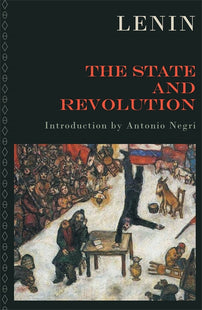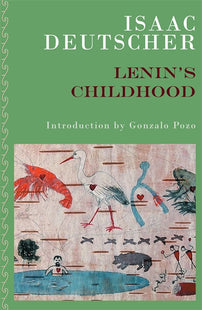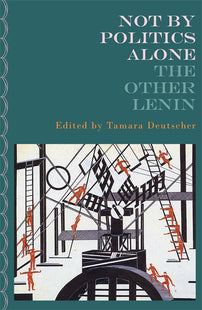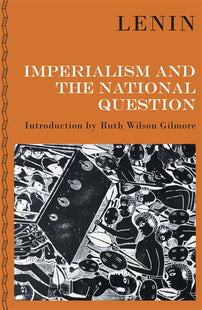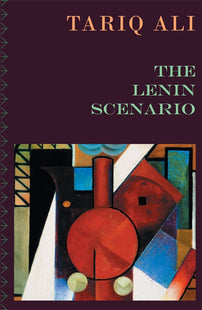The Novel of Lenin: Chapter Nine
The ninth and final installment of our nine-part series: The Novel of Lenin by Joseph Andras: Lenin, Ill, Then Dying, Rises Up Against Stalin’s Brutality

1916-1924: Lenin, Ill, Then Dying, Rises Up Against Stalin’s Brutality
We are in 1921. “War communism” attempts to respond to the civil war. Production is nationalized and work militarized, strikes are repressed and the soviets deprived of their initial power. Victor Serge, an anarchist rallied to communism, reports in his Memoirs of a Revolutionary: “Over all our achievements there hung a death sentence; since for all of us, for our ideals, for the new justice that was proclaimed, for our new collective economy, still in its infancy, defeat would have brought a peremptory death and after that, who knows what?” Anarchists, incidentally, are arrested in mass. The rupture is consummated, forever. Nestor Makhno, Ukranian libertarian communist leader, fled toward Europe. After having battled the White Army side by side with the Red Army, Soviet Russia turned on its Ukrainian allies. During the summer of 1918, Makhno met with Lenin in Moscow. The bolshevik informed him that “anarchists, lacking mass organisations, are not in a position to organise the proletariat and the poor peasants.” In his memoirs, the Ukrainian concludes that: “we all stood up, shook hands, and after exchanging thanks, apparently cordial, I left Lenin’s office.”
On the island of Kronstadt, sailors, workers, and soldiers rose up in May. They demanded, among other things, democratic respect towards diverse socialist forces: “Our cause is just: we stand for the power of soviets, not parties. We stand for freely elected representatives of the labouring masses. The substitute Soviets manipulated by the Communist Party have always been deaf to our needs and demands; the only reply we have ever received was shooting.” None of them see the birth of the third step of revolution; the regime sees them as so many counterrevolutionaries. The American anarchist Emma Goldman, exiled in Russia, offers herself up as a fraternal mediator. In vain. Victor Serge will grieve this: “For reasons of prestige and through an excess of authoritarianism, the Central Committee refused this course.” The regime sends in its troops, constrained and forced: the Kronstadt commune is broken. The Cheka arrests 6,500 people. Serge, again: they shot “senseless and criminal.” Never will the libertarians pardon Trotsky for this – a reproach that Tony Cliff will brush aside, qualifying Trotsky’s hand in the repression as “myth, pure and simple.” But if Trotsky was indeed absent, he no less signed the military decrees for intervention and ordered the scrambling of radio signals on the island. Until the end of his days, the founder of the Red Army will side with the party: that revolt, he will write in a 1938 article, was “a mortal danger to the dictatorship of the proletariat.”
The blood hardly dried, Lenin, weary, ill, calls for more flexible measures. The global revolution has not taken place. The civil war, overcome, provoked the country’s collapse. Industry is grounded. Famine emerges. Cannibalism is evoked. “We are beggars. Hungry, ruined beggars,” he thinks. The New Economic Policy, first proposed by Trotsky, but dismissed, is instituted by the party. A form of private property is reestablished, war communism comes to an end. Agricultural production comes back to life, new businesses appear. Victor Serge defends a “communism of associations” rather than communism of the State. While recognizing that the revolutionary power had no other choice than to defend itself, he will deplore “the perpetuation of terror” once the civil war had been overcome, insofar as it constituted “an immense and demoralizing blunder.”
Lenin’s nights are terrible. His body is in pain. But he hardly intends to rest. Rather, he attacks state bureaucracy. His solution? Purify the party. The task will be accomplished. But Lenin feels isolation overcome him, the generational renewal of officials obliges. He drafts an account of the revolution on the occasion of its 4th year: much more so than the French Revolution, it had shattered the old regime, but, at the same time, he had believed, wrongly, that it was possible to establish a communist economy in a ruined and destitute Russia. Capitalism’s days are no less still numbered. At the beginning of 1922, he accuses senior officials of disorganization. At the same time, he refuses to recognize total freedom of the press, the game of the bourgeoisie. From this point on, compelled to forced rest, Lenin writes. A lot. The number of officials must be reduced, bonds must be tightened with the working class and counterrevolutionary intellectuals must be chased out. Sometimes he is only listened to with one ear. He compares the State to a car driving in the wrong direction. He senses he is at his end; he knows he must pass the baton. Stalin is elected secretary of the Central Committee. Lenin continues to rage: “Administration? It’s shit! Decrees? Shit!”
Suddenly he is struck with paralysis. If he partially recovers his speech, he can no longer count. He manages to get up; he is treated with arsenic; he takes care to call for the expulsion of the anti-Soviet intelligentsia. Profiting from his absence, Stalin imposes himself a bit more each day. On November 22, 1922, Lenin speaks in public, praising the anchoring of socialism in everyday life, and then, once again bedridden and unable to write, dictates what would become his testament. Lenin stands up against the all-powerful brutality of Stalin and advises that his replacement be a “more tolerant” militant; Trosky is described as an exceptional man, though too sure of himself. The risk is great, he adds, that the reciprocal hostility between the two might provoke the fracturing of the party. The Stalinist Soviet Union will naturally censure the text. The morning of January 21, 1924, Lenin vomits blood, It’s the end. He was nearly 54. It is Nadezhda Krupskaya who addresses the workers: If you want to honor Vladimir Ilyich’s memory, build creches, kindergartens, houses, schools, libraries, dispensaries, hospitals, homes for invalids, etc., and, above all, let us carry out his behests in everything.”
This text was originally published by L’Humanité in a special edition commemorating the centenary of Lenin’s death. Translated from the French by Patrick Lyons.
[book-strip index="1"]



